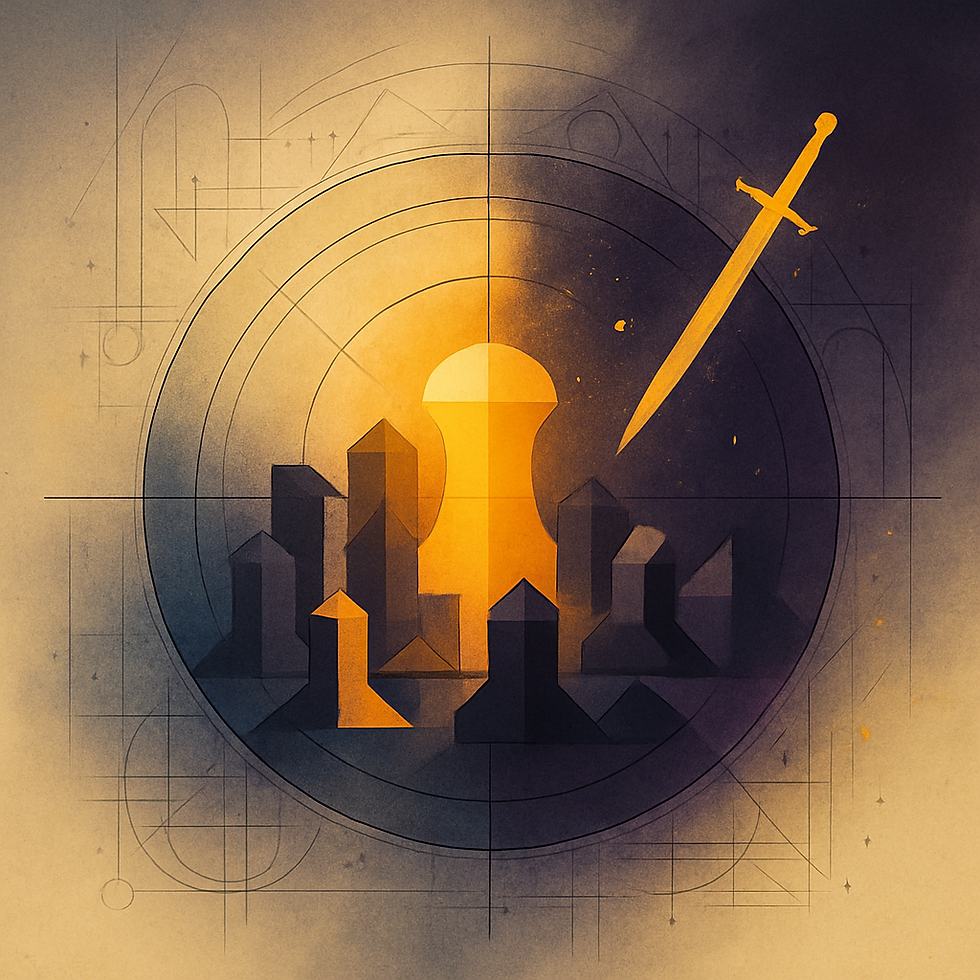If I could travel into the past: Darwin, “I Think”
- rabie soubra
- Sep 20, 2025
- 3 min read
If I could time travel, I would go to Charles Darwin's study in 1837 to witness the moment when he first grasped the implications of what would become evolutionary theory.
I want to be there when he hesitates over his notebook, pen suspended in midair, wrestling with an idea so dangerous he barely dares to write it down.
Picture him sitting at his desk, surrounded by specimens from the Beagle voyage, his mind turning over the strange patterns he's been noticing.
The finches with their subtly different beaks. The mockingbirds that seemed almost like variations on a theme. The way island species resembled mainland relatives while differing in puzzling ways.
I want to see the exact moment when these scattered observations suddenly click into a terrifying pattern. Watch his face as he realizes that all life might be connected in ways that would horrify every religious authority in England.
See him understand that he's stumbled onto something that could topple the very foundations of Victorian society's understanding of creation, purpose, and humanity's place in the cosmos.
Then comes the moment I most want to witness: Darwin picking up his pen and sketching that tentative, branching tree diagram. His hand moving slowly, almost reluctantly, as if the very act of drawing might make the dangerous idea too real to ignore.
The way he probably glances around his study, making sure no one can see what he's contemplating.
Above the sketch, he writes two words that capture the enormous weight of his uncertainty: "I think."
Such cautious language for such a revolutionary concept.
He's not declaring or proclaiming, he's tentatively wondering, barely allowing himself to consider the possibility that all life might have descended from common ancestors through gradual modification.
I want to see the internal struggle playing out on his face. This is a man raised in a world where species were considered fixed creations, where the natural order reflected divine design, where questioning the origin of life bordered on blasphemy.
Yet here he is, unable to ignore what his observations are telling him.
Does he set the pen down immediately, overwhelmed by the implications?
Does he stare at those two words—"I think"—knowing they represent the beginning of an idea that will consume the next twenty years of his life?
Can he already sense the storms this theory will unleash, the careers it will destroy, the worldview it will shatter?
I want to witness the birth of scientific courage in real time.
This is the moment when Darwin chooses to follow evidence wherever it leads, regardless of the personal cost.
He knows this idea will make him enemies, will brand him a heretic, will force him to spend decades gathering overwhelming proof before he dares publish anything.
Yet he writes those words anyway. "I think."
The most cautious possible phrasing for the most explosive idea of the nineteenth century, probably of all time.
That notebook page represents one of those rare moments when human understanding takes a quantum leap forward.
Everything that comes after, the twenty years of careful research, the eventual publication of Origin of Species, the transformation of biology, the ongoing battles over evolution, all of it begins with that hesitant sketch and those two uncertain words.
I want to be there to see the exact instant when Darwin realizes he's crossed a line he can never uncross, when he understands that his life's work will be defending and developing this dangerous idea.
The moment when a Victorian gentleman naturalist becomes, almost against his will, a revolutionary who will change how humanity sees itself forever.
The most profound ideas often begin with the most tentative steps.
I want to witness the man who wrote "I think" above a simple drawing, unaware he was sketching the future of human knowledge.






Comments